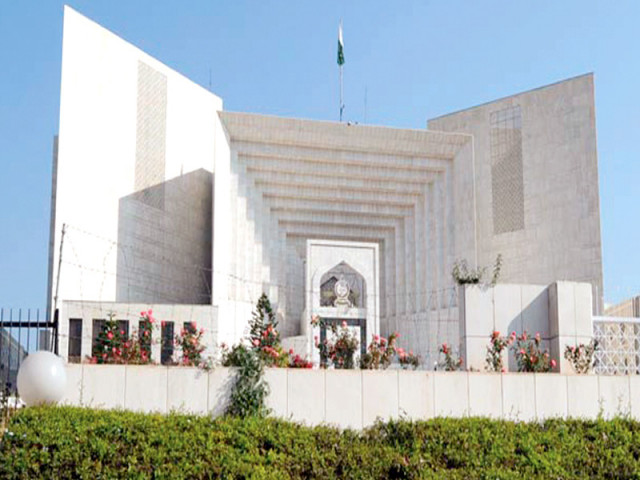Govt’s counsel unable to name supporters of new law
Court points out that ruling party’s own legislators criticised the legislation.

Govt’s counsel unable to name supporters of new law
While the legal representative of the federation might have said a bit too much during Tuesday’s proceedings of the contempt of court law case, he found himself at a loss for words on Wednesday.
A five-member bench of the Supreme Court had asked Abdul Shakoor Paracha to name any one parliamentarian who had spoken in favour of Contempt of Court Law 2012.
On Tuesday, he admitted to the court that the new law could have been aimed at protecting the new prime minister from contempt charges, which had resulted in his predecessor Yousaf Raza Gilani’s disqualification
Justice Jawwad S Khawja observed that the purpose of going through the parliamentary debate was to try to understand the legislation. “We would like to save this legislation if we know the wisdom behind it,” he said.
Referring to the speeches of Pakistan Peoples Party’s Senator Aitzaz Ahsan and Senator Raza Rabbani, Chief Justice Iftikhar Muhammad Chaudhry noted they were not in favour of the new contempt law. “Kindly tell us if somebody had spoken in favour,” he added.
“Members of the treasury benches stated that section 3 of the new contempt law was in violation of Article 248 of the Constitution,” observed Justice Tassadaq Hussain Jilani.
Paracha, who took some time to answer the question, finally responded: “The debate in the Senate was good.”
He then continued submitting his arguments based on objections raised by over two dozen petitioners over the new law.
Paracha said parliament could grant immunity to anyone, as well as legislate on the subject of immunity, and the court could not declare its actions mala fide.
“We do respect parliament but it cannot amend the Constitution with a simple majority,” observed Justice Jilani. “Parliament can do it through a Constitutional Amendment,” he elaborated.
Responding to the judges, Paracha insisted the Constitution had not been amended, but there were lacunas in the old law that had been addressed. He further said that the judgment given in former premier Gilani’s case cannot be the basis for proceedings of another, he explained.
The bench, however, observed that one cannot nullify a judgment by amending the law – but it could be done through new legislation.
“Punishment of contempt is not for the ego of judges, it is for the dignity and majesty of the court,” the chief justice said, adding that the government should enhance this dignity.
Paracha concluded his arguments on Wednesday, paving way for Attorney General Irfan Qadir to address the court today (Thursday).
Published in The Express Tribune, August 2nd, 2012.



















COMMENTS
Comments are moderated and generally will be posted if they are on-topic and not abusive.
For more information, please see our Comments FAQ